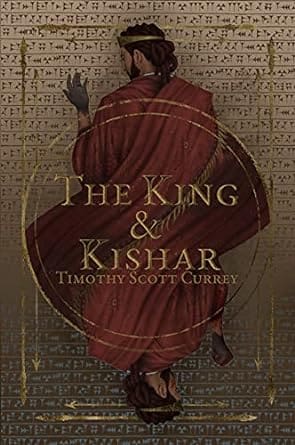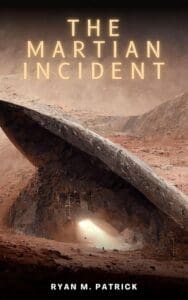
Synopsis:
Every word King Adzi Akkatha writes on sacred stones is binding, and lasts for all eternity.
But how can he rule when he has been cursed to forget everything?
His city is in chaos. Hinatsi rebels clash with his soldiers, and their mysterious leaders try to capture the King.
With the help of High Priestess Idza and General Qanatha, he must relearn their laws and customs, and who he was as a King. His former self seemed cruel and cold, and he is plagued with doubts. He is an imposter in King’s clothing—do they even have the right man?
They must flee to the great Temple of Mesopos where the King’s memory might be restored. The rebels are never far behind, and day by day the curse progresses.
There is little hope they will reach the temple in time.
Even if they do, will the King want to continue ruling as a cold tyrant?
Review:
A king with sudden amnesia is an interesting premise, particularly when it’s revealed most of his subjects no longer remember him either. (A select few do, and that’s important…) I went through the first few chapters with the impression that someone had hoped to erase the king completely from his lands, but didn’t quite succeed. However, the reader is given the same information the king is, so it was all speculation on my part. Let’s just say my theories weren’t exactly correct in the end.
On that note, yes, this book has a couple unexpected twists, and they were done really well. But there were also a couple items that I could see coming from a mile away. It was a nice mix of predictable and not.
But my favorite part of this story was its take on the adage, “History is written by the victor.” In this book, it’s taken to the extreme. The histories and heritage of those conquered are completely erased by the workings of the monarchs in power—and the ring they were entrusted with by one of the gods. The kings have decided what history should be recorded, and anything else is obliterated. Literally. Even the newly-conquered people, those who were alive during the time of the conquest, can’t remember what really happened. The more I think about it, the scarier that concept is.
The main character of the story is the king, and given his amnesia, he refers to himself as “the King” for the majority of the book, even after he learns what his name should be. He is understandably confused and fumbles around frequently throughout the story, but in the end, he does the right thing. I liked his character.
I can’t say the same for his two primary advisors, though one proves a better companion than the other by far. First there’s Idza, a high priestess in the temple of Mesopos (the god of history/preserving knowledge.) The other is Quantha, the commander of the warriors known as the Immortals, whose purpose is to protect the interests of the crown. They are both working toward their own ends, and I didn’t trust either one. Needless to say, the king’s situation is only made worse by their manipulations.
This was a great story, with a very fitting ending. For those looking for a standalone (low) fantasy book, I’d recommend taking a look at The King & Kishar.










Leave a Reply